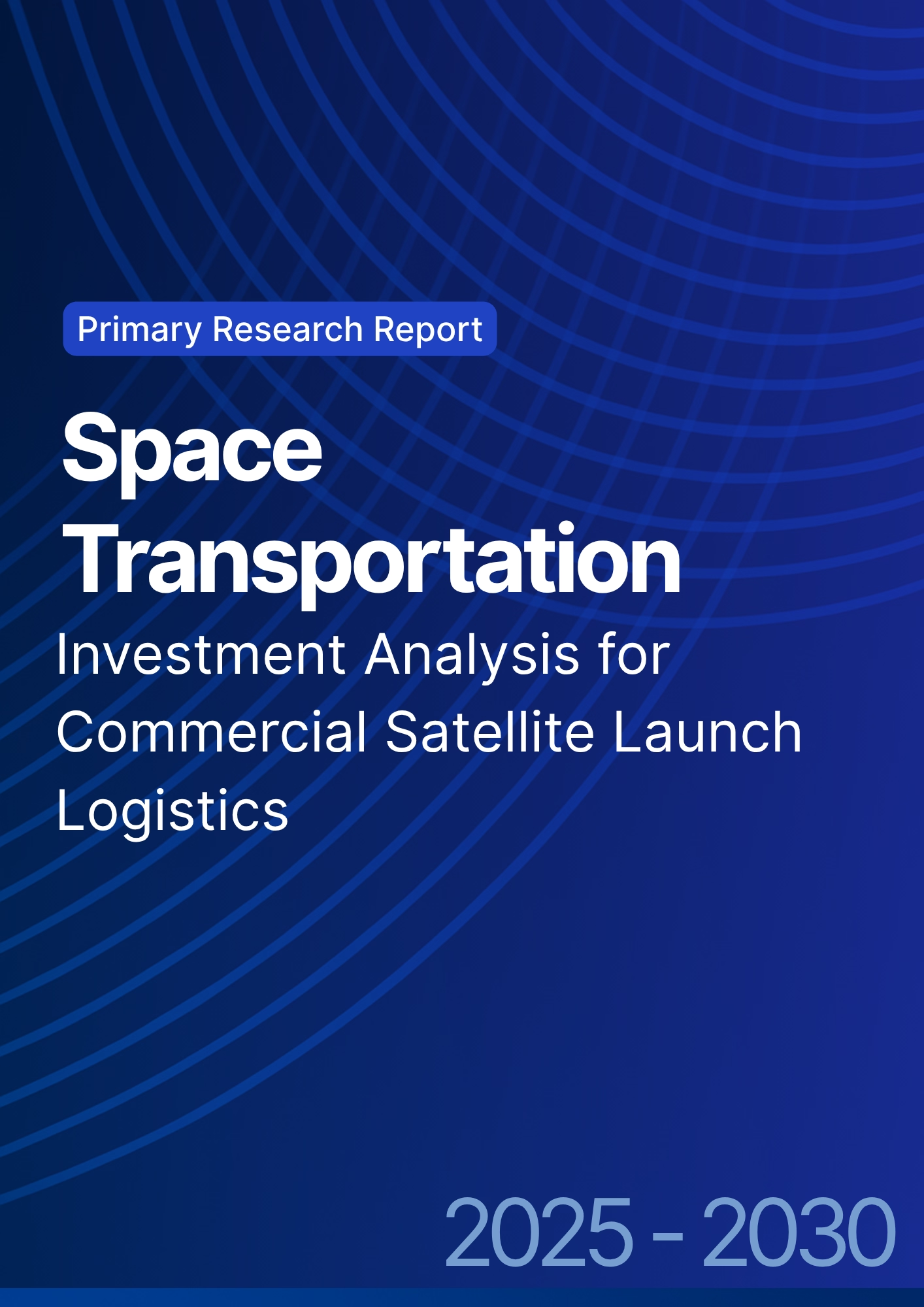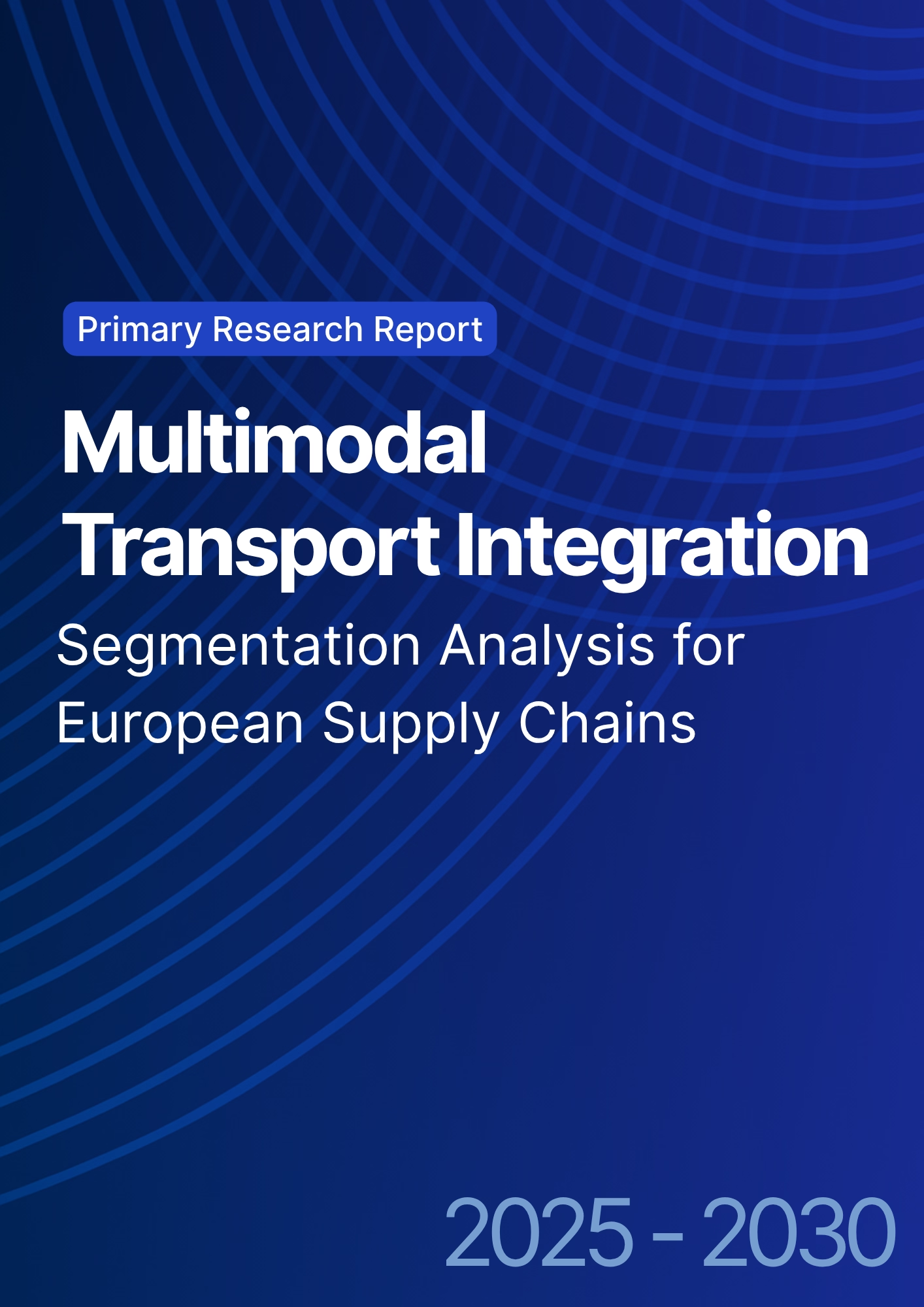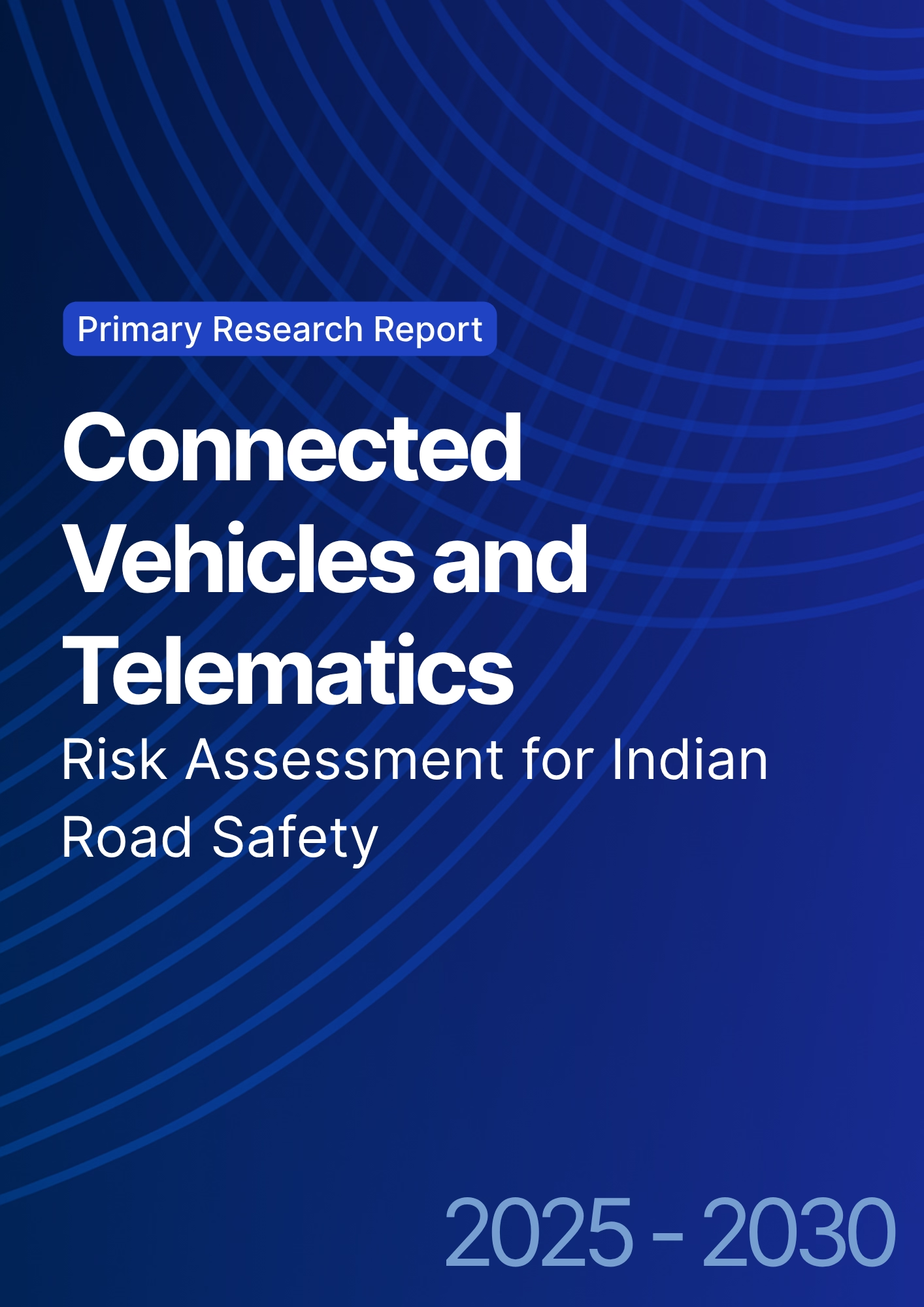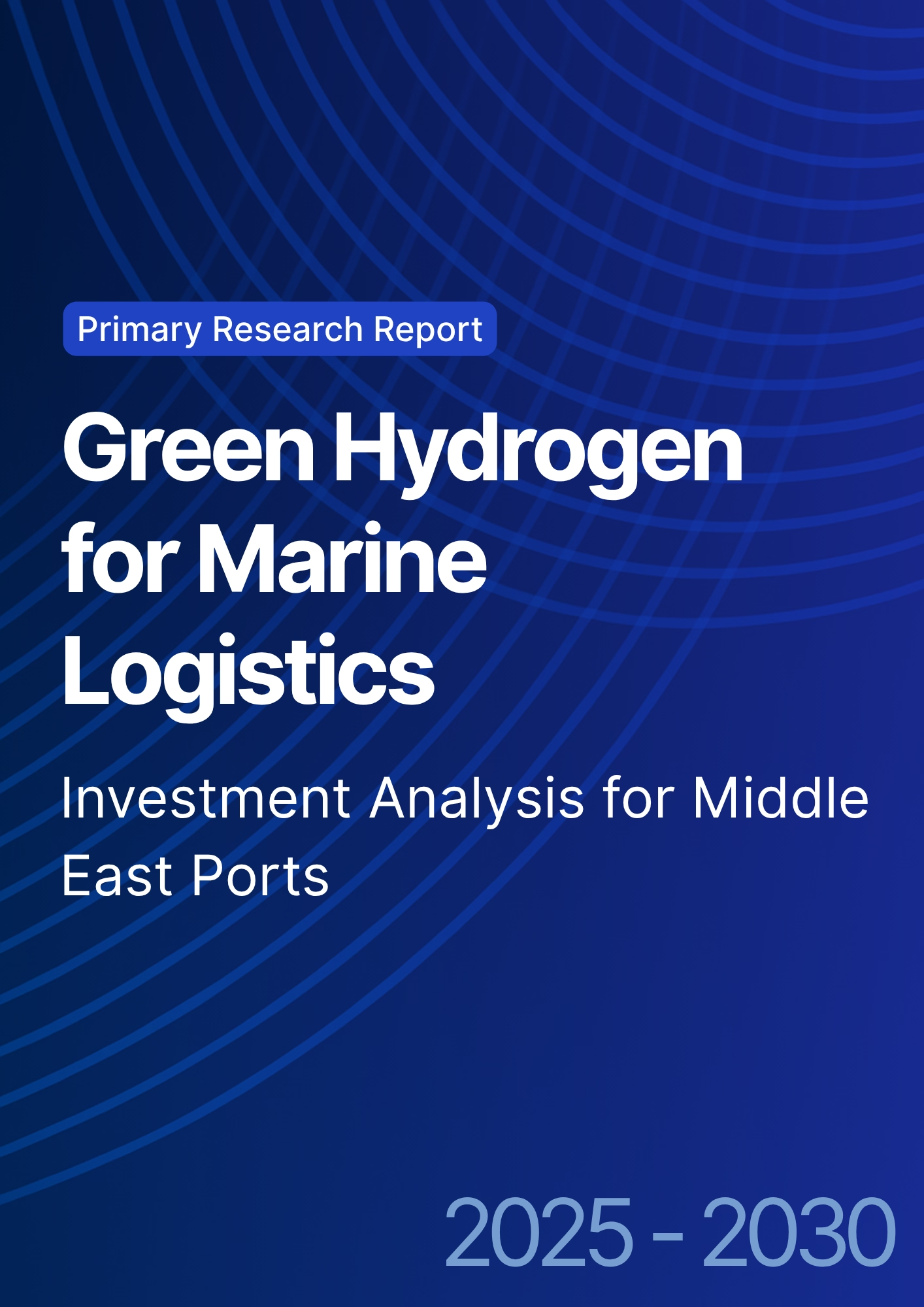

68 Circular Road, #02-01 049422, Singapore
Revenue Tower, Scbd, Jakarta 12190, Indonesia
4th Floor, Pinnacle Business Park, Andheri East, Mumbai, 400093
Cinnabar Hills, Embassy Golf Links Business Park, Bengaluru, Karnataka 560071
Connect With Us
Cross-Border E-Commerce: Segmentation Analysis for Southeast Asian Air Cargo
Between 2025 and 2030, cross-border e-commerce air cargo in Southeast Asia is projected to surge from $7.4B to $19.6B (CAGR 21.1%), driven by digital marketplace expansion, low-cost carrier integration, and bonded logistics hubs. Singapore, the regional logistics nerve center, accounts for 34% of ASEAN’s cross-border air freight volume through Changi’s AirHub 2030 initiative. E-commerce-led air freight tonnage is expected to rise 2.7×, fueled by China–ASEAN trade corridors and last-mile digital consolidation platforms improving delivery efficiency by 29% across regional routes.
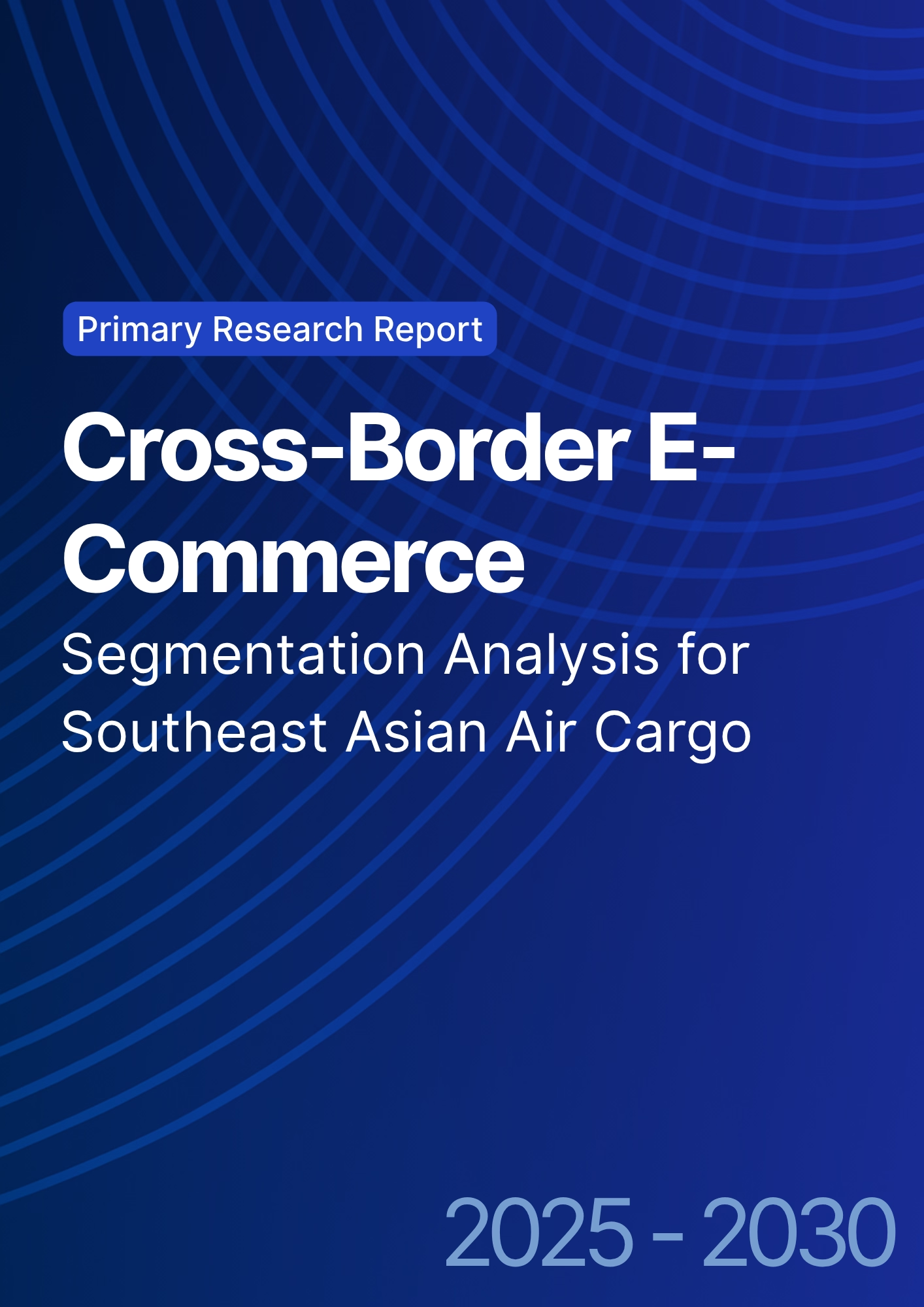
What's Covered?
Report Summary
Key Takeaways
- Market size: $7.4B → $19.6B (CAGR 21.1%).
- Singapore leads with 34% share of ASEAN e-air cargo volume.
- E-commerce shipment tonnage up 2.7× by 2030.
- Fulfillment-to-air transfer time reduced by 29% via digital hubs.
- Low-cost carrier capacity for parcels grows 3.5×.
- Cross-border routes between China–Singapore–Malaysia dominate 61% of trade volume.
- Pharma and beauty products drive 19% of e-commerce air cargo value.
- Bonded warehousing space in Singapore expands by 44%.
- Automated customs clearance improves throughput by 38%.
- Regional logistics startups attract $2.8B in funding (2025–2030).
Key Metrics
Market Size & Share
The Southeast Asian cross-border e-commerce air cargo market expands from $7.4 billion in 2025 to $19.6 billion by 2030, registering a CAGR of 21.1%. Singapore, as ASEAN’s logistics epicenter, commands 34% of total air cargo trade, processing 1.8 million tons of cross-border parcels annually by 2030. Malaysia (19%), Thailand (17%), and Vietnam (14%) follow, driven by growing online retail exports to China, Korea, and Europe. The AirHub 2030 initiative in Singapore’s Changi Airport integrates AI cargo routing, bonded storage, and predictive customs—reducing processing time from 22 to 15 hours per consignment. China–Singapore corridors represent the highest growth, capturing 61% of ASEAN’s e-air freight tonnage. Product verticals led by fashion, pharmaceuticals, and electronics account for 72% of total shipment value. Fulfillment center automation across Singapore’s Tuas and Changi hubs boosts throughput by 38%. By 2030, ASEAN’s total e-commerce-driven air cargo volume will exceed 3.4 million tons, positioning Singapore as the primary digital air trade hub for cross-border parcel logistics in the Asia-Pacific region.
Market Analysis
Digitization, regional trade liberalization, and carrier diversification drive ASEAN’s e-commerce air freight transformation. Low-cost airlines, such as AirAsia Cargo, Scoot, and VietJet Air Cargo, are converting underutilized passenger fleets to dedicated express cargo lines—tripling parcel capacity by 2030. The integration of AI-driven demand forecasting reduces overcapacity by 19%, while automated customs clearance cuts inspection times by 38%. Singapore’s bonded air logistics parks offer duty-free re-export advantages, saving exporters up to 14% in tax-related costs. The ASEAN Single Aviation Market (ASAM) enables cross-border cargo harmonization, facilitating multi-destination routing for fast e-fulfillment. China–ASEAN e-commerce corridors, supported by Alibaba Cainiao and JD Logistics, move high-frequency parcels through digital airway bill networks, enhancing cross-border efficiency. Thailand and Vietnam are expanding regional gateways under ASEAN Air Cargo Connectivity 2.0, with new terminals handling >400,000 tons annually. AI visibility platforms from firms like Parcel Perform and ShipMatrix APAC enable predictive tracking with 94% accuracy, enhancing customer experience. By 2030, Southeast Asia’s e-air cargo market will become the fastest-growing digitalized trade segment globally, anchored by Singapore’s real-time logistics governance model.
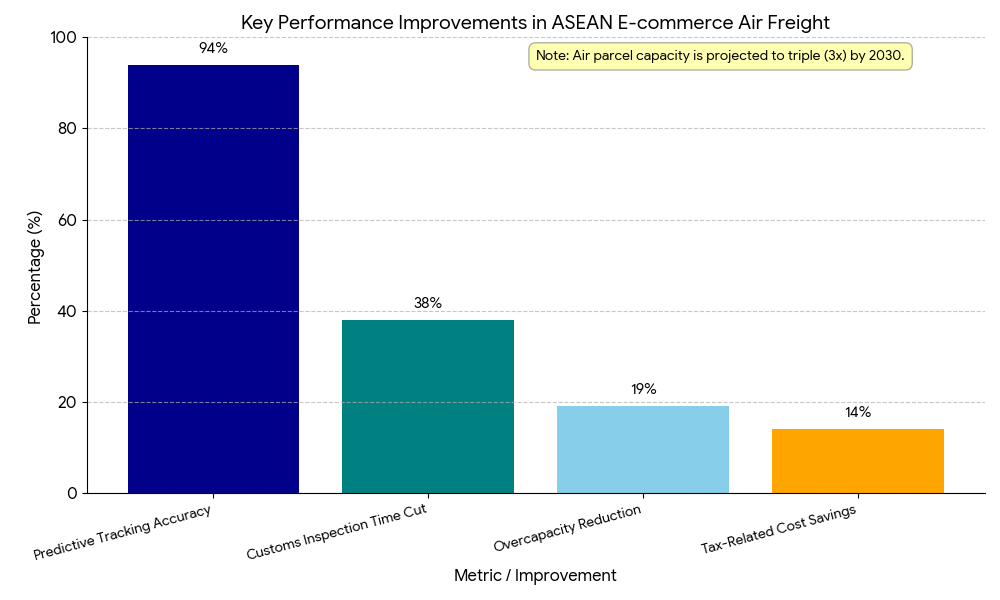
Trends & Insights
- Digital Trade Corridors: ASEAN–China–India air routes see 65% traffic growth by 2030.
- Smart Fulfillment Centers: Automation increases package handling throughput by 38%.
- Data-Driven Customs: Predictive AI reduces declaration errors by 46%.
- Green Logistics: Sustainable aviation fuel (SAF) adoption reduces emissions by 18%.
- Parcel Density Optimization: Smaller packaging cuts air freight costs by 9%.
- E-Trade Financing: Fintech-backed platforms reduce SME logistics bottlenecks.
- Blockchain Airway Bills: Digital authentication improves cargo traceability.
- Last-Mile Integration: Smart lockers and urban microhubs expand 2.9× regionally.
- Low-Cost Carrier Alliances: Partnerships boost ASEAN intra-route freight capacity.
- ESG Compliance: Air cargo operators align with EU Fit-for-55 carbon benchmarks. Together, these trends signify ASEAN’s evolution into a digitally intelligent, transparent, and sustainability-aligned e-commerce air freight ecosystem centered on Singapore’s leadership.
Segment Analysis
The market segments into consumer e-commerce parcels (43%), B2B trade goods (29%), pharmaceutical & health shipments (18%), and luxury & high-value products (10%). Consumer parcels dominate, expanding at a 23% CAGR, fueled by fast-fashion, beauty, and electronics exports from Thailand, Vietnam, and Malaysia to North Asia and Europe. Pharmaceutical and health shipments—valued at $3.1B by 2030—are rising due to growing regional biopharma production. Luxury goods shipments, led by Singapore and Malaysia, account for 10% of volume but contribute 24% of total value. The emergence of AI-based load optimization systems reduces air freight waste by 12%, improving cost per ton-mile economics. Cross-border e-commerce SMEs rely on digital freight-forwarding platforms like NinjaVan, Janio, and Teleport, which now handle over 40% of ASEAN parcel exports. Singapore’s Tuas MegaPort integration with Changi Air Cargo Hub ensures seamless multimodal connectivity, cutting lead times by 25%. This multi-segment structure underscores the shift toward automated, data-driven parcel logistics, supporting ASEAN’s integration into global digital trade networks.
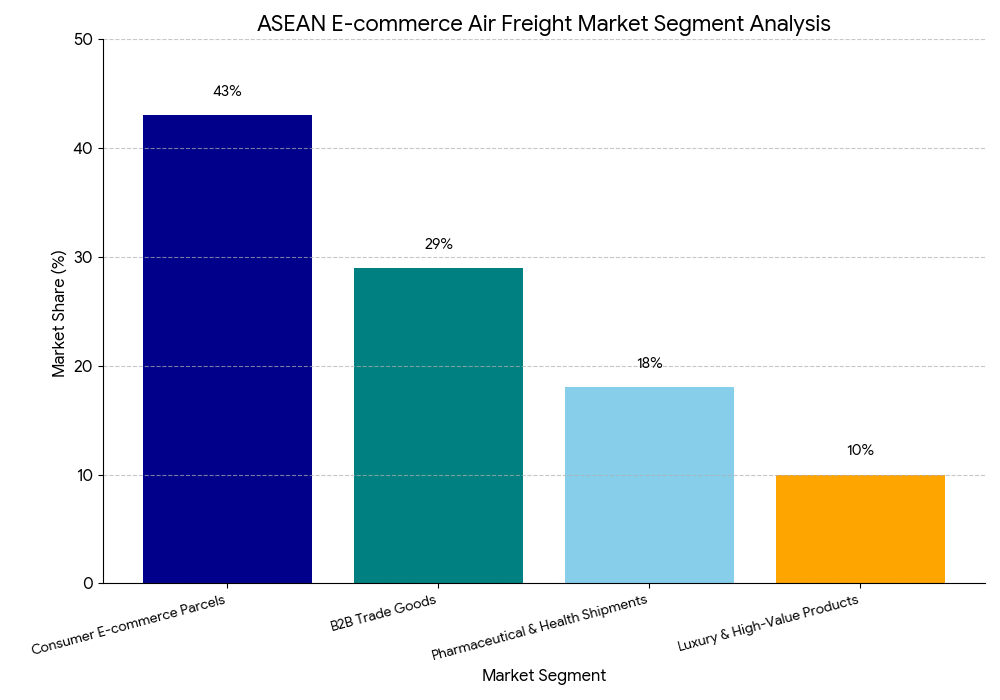
Geography Analysis
Singapore leads the region’s e-commerce air cargo network, accounting for 34% of ASEAN trade value through Changi’s AirHub 2030. The Changi Air Cargo Express Zone expands cold-chain and express parcel handling capacity by 1.5M tons annually. Malaysia (19%) and Thailand (17%) leverage digital freight platforms to consolidate SME exports. Vietnam (14%) benefits from rapid e-commerce scaling and the Noi Bai and Tan Son Nhat air freight modernization programs. Indonesia and the Philippines, with growing middle-class e-shoppers, contribute 11% combined through expanding intra-ASEAN routes. Singapore’s re-export advantage, via bonded warehousing and multi-currency trade settlement, positions it as the digital gateway for regional fulfillment. Cross-border lanes between Singapore–Kuala Lumpur–Bangkok handle over 65% of regional air parcels. By 2030, the ASEAN e-air cargo ecosystem will process 3.4M tons of freight annually, with Singapore solidifying its status as Asia’s e-commerce air logistics control tower.
Competitive Landscape
The competitive environment is dominated by integrated logistics providers, e-commerce platforms, and tech startups. Singapore Airlines Cargo, DHL Express, and Cainiao Smart Logistics Network control over 55% of ASEAN e-air freight flows. SF Express, NinjaVan Air, and Teleport by AirAsia are emerging as competitive disruptors offering low-cost air freight for SME exports. Changi Airport Group collaborates with Alibaba, Shopee, and Lazada on digital airway bill standardization, streamlining documentation. Logistics tech players—Parcel Perform, ShipMatrix APAC, and Freightos Southeast Asia—enable real-time parcel tracking and demand forecasting. Government initiatives, such as Singapore’s Logistics Innovation Program and ASEAN Customs Integration 2027, will improve transparency and interoperability across borders. By 2030, the competitive edge will shift toward data intelligence, multimodal agility, and ESG compliance, with Singapore positioned as the digital trade hub uniting ASEAN’s e-commerce air cargo ecosystem.
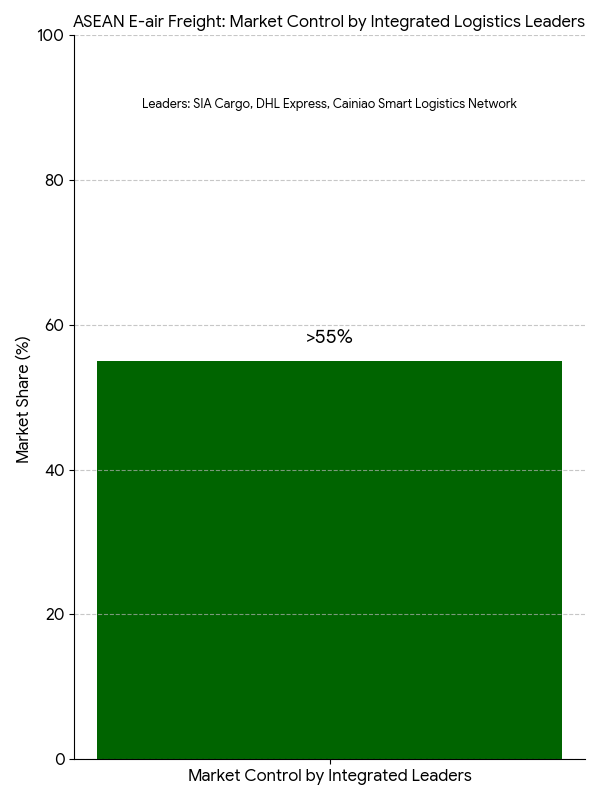
Report Details
Proceed To Buy
Want a More Customized Experience?
- Request a Customized Transcript: Submit your own questions or specify changes. We’ll conduct a new call with the industry expert, covering both the original and your additional questions. You’ll receive an updated report for a small fee over the standard price.
- Request a Direct Call with the Expert: If you prefer a live conversation, we can facilitate a call between you and the expert. After the call, you’ll get the full recording, a verbatim transcript, and continued platform access to query the content and more.


68 Circular Road, #02-01 049422, Singapore
Revenue Tower, Scbd, Jakarta 12190, Indonesia
4th Floor, Pinnacle Business Park, Andheri East, Mumbai, 400093
Cinnabar Hills, Embassy Golf Links Business Park, Bengaluru, Karnataka 560071
Request Custom Transcript
Related Transcripts


68 Circular Road, #02-01 049422, Singapore
Revenue Tower, Scbd, Jakarta 12190, Indonesia
4th Floor, Pinnacle Business Park, Andheri East, Mumbai, 400093
Cinnabar Hills, Embassy Golf Links Business Park, Bengaluru, Karnataka 560071





